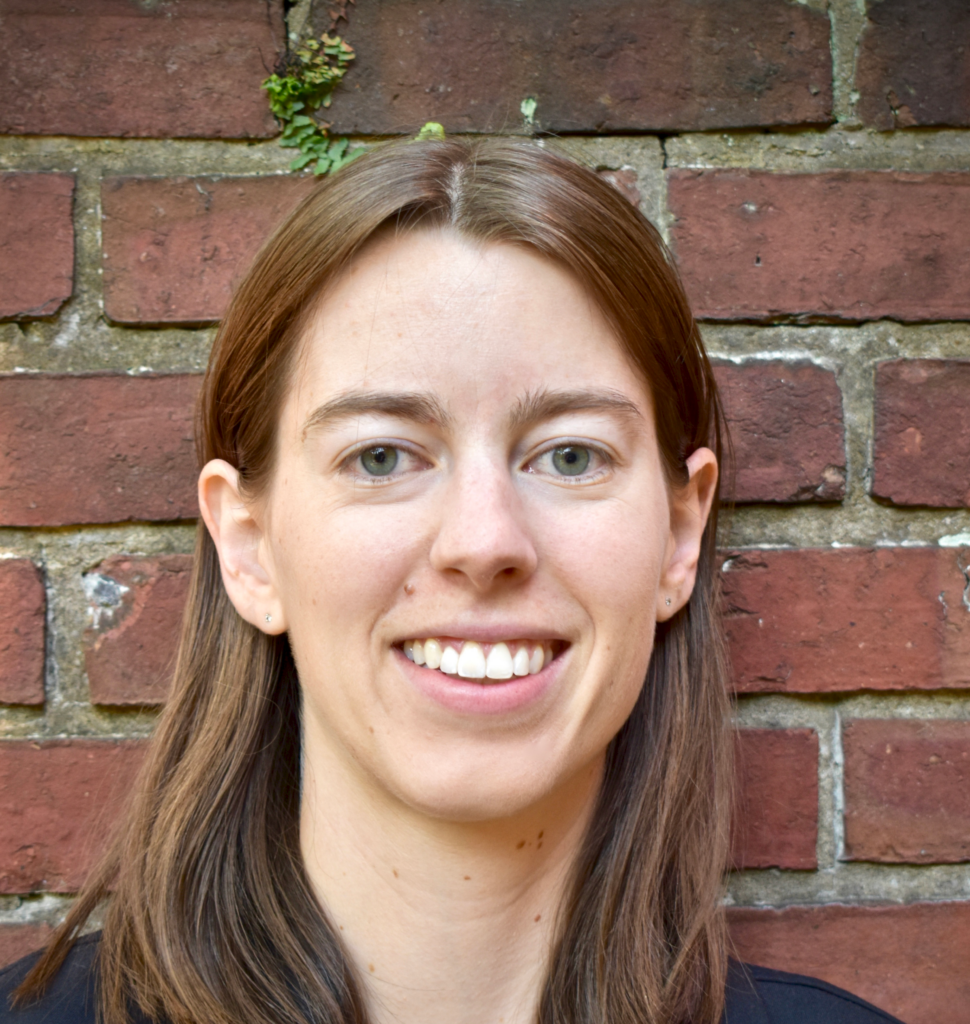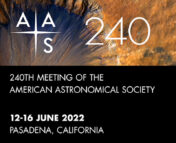For today’s Beyond Post, I spoke with Dr. Julie Davis, the current AAS John N. Bahcall Public Policy Fellow. Astrobites has interviewed previous Bahcall Fellows (you can read those here and here), and previously put together a guide on Science Policy, which you can view here. Astrobites is supported by the AAS but is editorially independent.
Dr. Julie Davis has worked on the cutting edge of scientific research. But, these days she spends her energy in arguably more taxing arenas: Washington DC, the halls of Congress, and the conference rooms of various government agencies. Dr. Davis is the current Bahcall Fellow for the American Astronomical Society, a position designed to serve as a conduit between the members of the American astronomy community and the U.S. federal government. We sat down with Dr. Davis to learn more about her path to this role and more about the AAS’s role in advocating for astronomers.
Like many (but not all!) practitioners of science policy, this career wasn’t her initial plan. While growing up in Colorado, she was pretty sure early on that she’d be an astronomer. “I’d always known that I wanted to do astronomy, I picked it when I was like, 14,” Davis says. Led by that passion, she attended the University of Colorado Boulder, and while there picked up research projects as wide ranging as a search for hydrocarbons in the ISM to investigating quasar absorption lines. She also completed an internship at Lockheed Martin, where she got to touch a piece of Juno before it began its quest to Jupiter’s inner radiation belts. After a gap year of additional research in the Rockies, she departed for the PhD program in Astronomy at the University of Wisconsin Madison.
Once there though, the prospect of a career outside of research began to be a more serious consideration. Leaning on a space science policy course she took back in Boulder, she applied for and was accepted to the annual AAS Congressional visit day. Held annually, the AAS trains about 15 active scientists how to advocate for astronomy before turning them loose to meet with their elected representatives. Later, Davis had another brush with policy through a campus group called Catalyst for Science Policy, an affiliate of the National Science Policy Network. They were charged by the Wisconsin State Legislature to advise lawmakers on a more earthly topic than her celestial studies: shoreline erosion. “We wrote this eight page memo and I was just like, this is really fun,” Davis says. “You know, using my research skills to collect all of this knowledge and [to] present it in a coherent manner… yeah, I think this is what I really want to do. And so at that point, I made the decision that I was going to, you know, pivot and pursue policy. “ After completing her PhD in 2021, she accepted the Bahcall Fellowship and made that leap.
Now immersed in the policy world, Davis says much of her time is spent keeping an eye out for issues the astronomy community cares about and for opportunities to advocate on their behalf. Some of this reconnaissance is casual: “I actually spent a lot of time on Twitter, seeing [if] people are unhappy about this thing or that thing, then reporting back and figuring out if there’s anything we can do about it.” An early example of this was the issue of JWST’s namesake. One of Davis’ first tasks was to assist in crafting a letter to NASA Administrator Bill Nelson voicing AAS’s position in favor of a transparent investigation into the historical discrimination which sparked the campaign to consider renaming JWST. After receiving no response, the AAS Board sent another letter to NASA requesting that it “implement a rigorous naming process retroactively for JWST… This process might result in a name change, or not.” (Astrobites is supported by the AAS but editorially independent).

The largest issue currently on Davis’ radar is the unhappy prospect of satellite constellations swarming the night sky as companies expand their constellations. “We’ve been strategizing about how best to deal [with that]”, she says, before quickly noting that this will be an issue where compromise is required. “We obviously can’t be like ‘no more launches, no more satellites’. That’s just untenable, and the cat’s out of the bag. We’re just trying to keep it from clawing up the furniture.”
How exactly can the AAS rein in this light-polluting beast? Hopefully by convincing lawmakers to expand the FCC’s ability to consider new factors when approving licenses for each satellite launch. “The FAA told us ‘oh, we can only look at each individual launch. We can’t consider the aggregate effects’… So, we’re asking… that aggregate effects can be considered”. Should that language make it into legislation, the executive agencies which approve each launch would be able to ensure no one swarm, or the collection of all swarms, grows too large.
The legislative process, however, is a long one, and there are no guarantees that the astronomy community’s concerns will capture all the relevant actors’ attention at the right time. Although Davis acknowledged the severity of the problem, she also stressed that bureaucratic changes roll over at a more glacial speed than most scientists would expect. “I guess the overwhelming thing I would say is the government is just so slow, and it takes so much time to pass legislation”, she says. “You can work years on legislation, just to see it fail. And you know, you have to build coalitions. You can’t just walk up and demand something and expect it to happen.”
That slog, and the conversations with those who hold different priorities and values than the scientific community, can be frustrating. But, Davis believes, having at least some official engagement in the existing process is a necessary ingredient for change. “We can either be at this unsavory table, being able to talk to them and maybe affect change, or we can be outside… banging on the door and screaming… [we have to] maintain the only credibility we have, [since] the only power we have is our credibility.”
If that sounds draining, Davis acknowledges that it can be, but also that the job is not without its rewards. “I guess I really like the whole aspect of [getting] to wrestle with all the big problems that you see in the news on a daily basis, which can be also overwhelming. No, it definitely takes a special kind of person” to enjoy and thrive in a science policy career.
As for advice to researchers considering deepening their involvement in science policy, she had a few concrete suggestions: “If you decide that you want to go into policy and you’re looking for ways to prepare during grad school, sharpen all communications things. You can [communicate with] any sort of audience, you can [practice] public speaking and public writing”. Also, if one exists, “find an on-campus group” of others exploring the policy space.
At the end of our conversation, Dr. Davis graciously shared a handout of science policy resources, which you can view here. For more on science policy, check out Astrobite’s Guide to the topic!
Astrobite edited by Katya Gozman
Featured image credit: USGS
Correction, 7/23/2022: An earlier version of this piece misidentified which letter to NASA Dr. Davis contributed to. She assisted with the initial letter sent in November 2021, not the latter one sent in March 2022.

